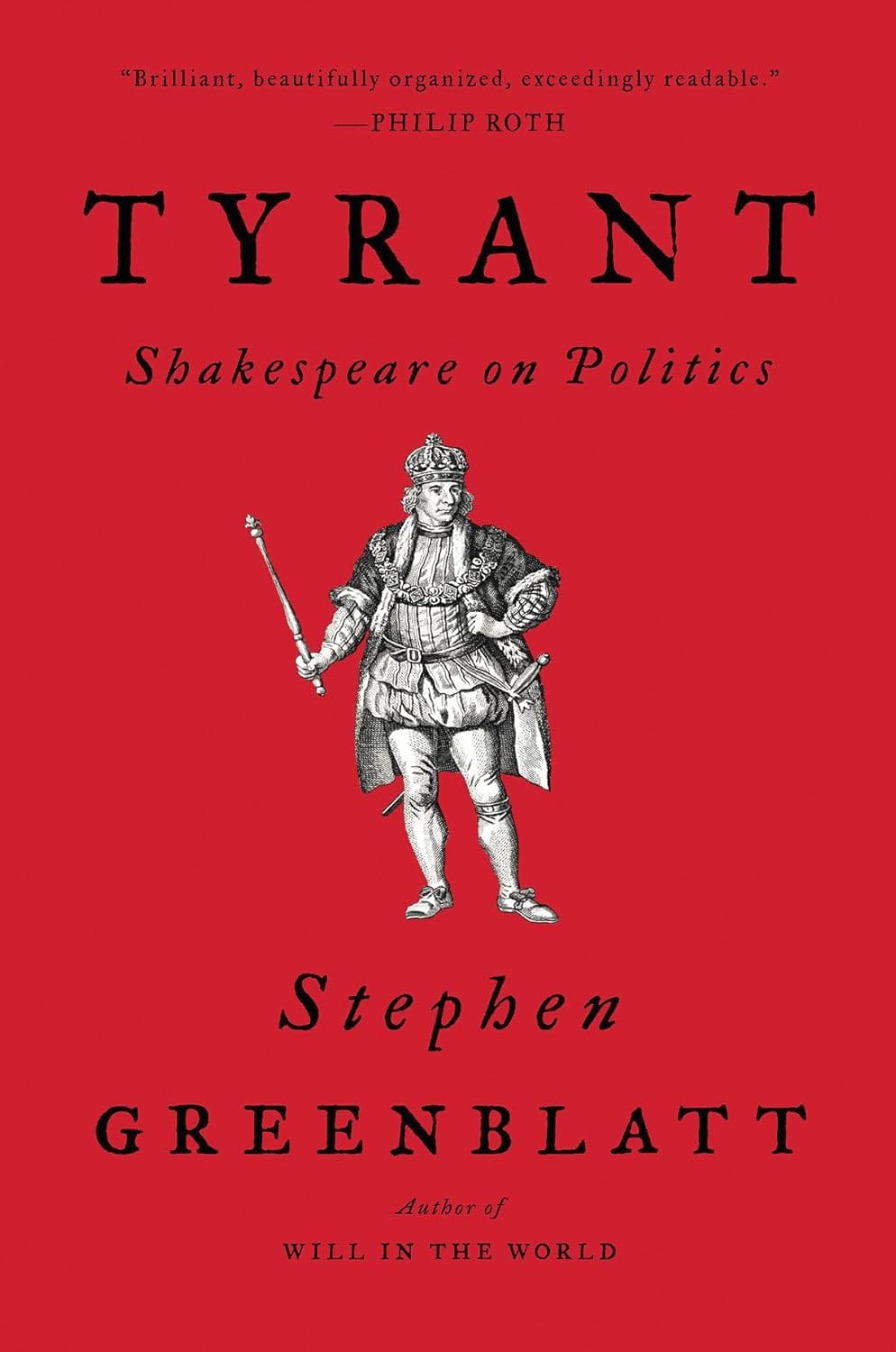Tyrant

Given our current political climate, this seemed like a relevant book to read. It also has a direct LabVIEW tie-in. A few years ago, I went to GDevcon in Birmingham. At the end of the conference, Allen C. Smith and I visited Stratford-upon-Avon, Shakespeare's birthplace. We saw a bunch of plays and visited a bunch of historic sites. They had a bookstore where I picked up a copy of this book.s
Lots of Shakespeare's plays revolve around tyrants and political intrigue. Many of them are based on historical events. It's very interesting to look at Shakespeare's thoughts on tyranny since he seems to have studied it a little bit. It's very interesting to note how timeless this theme is. Many of his observations still seem very relevant if you look at the tyrants that have come and gone since Shakespeare's time. Some patterns seem to emerge, and Shakespeare very much picked up on those.
In the most apt comparison, in the prelude to Richard III, Jack Cade rouses the peasants with promises to make England great again. He spouts tons of lies and half-truths, which the crowds eat up. Another interesting comparison is the Yorkists embracing England's prior enemy, the French. There are a lot of other apt comparisons.
I found the book both comforting and disconcerting at the same time. Comforting in the fact that dictatorships tend not to last. There are certainly some exceptions on the world stage - North Korea comes to mind - but in general, I feel like that tends to be true. I'm not much of a historian, so someone please correct me if I am wrong. Shakespeare attributes that to the fact that the skills required to become a dictator are actually a detriment when it comes to ruling. In his writing, would-be tyrants are similar to dogs chasing cars. They are so interested in the pursuit that when they finally catch the car, they don't really know what to do. Surrounding yourself with sycophants and ruthless enforcers is great for acquiring power, and not so great for holding onto it. The great promises that rile up and attract the masses prove hard to live up to. Eventually, you run out of enemies to blame and persecute. The ruthlessness and incompetence in governing tend to create lots of enemies, which eventually become a large part of their downfall.
The disconcerting part is that there isn't really a happy ending. Yes, tyrants tend to eventually fall, and they do a lot of damage in the meantime that can't be undone. Just look at World War II movies. We all know the outcome. We all know the Allies win in the end, and yet the best ending any WWII movie can hope for is bittersweet. There were no real winners there. The cost of victory is high. The same is true for any other dictatorship that lasted for any significant amount of time.
If you are interested in studying dictators more, there is an interesting series I watched on Netflix years ago. It was called 'El Chivo.' It was about Trujillo in the Dominican Republic. It was quite good. I don't think it is on Netflix, but if you can find it, it is a good study. Trujillo defies the idea that most tyrants don't last very long. He stayed in power for quite a while - 31 years. It is striking how he was able to couch his actions with an air of legitimacy. It's interesting to watch how much support he is able to garner in the beginning and how slowly it unravels. All this to say, there is some hope.